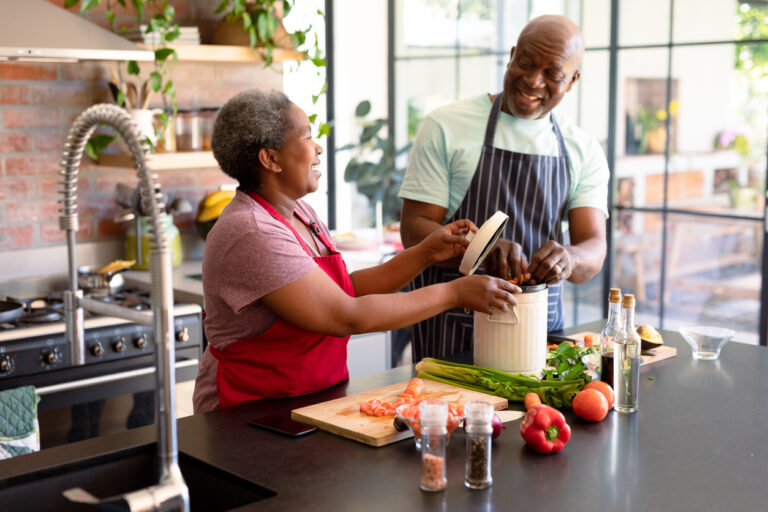by Marlene Warren
“The health you enjoy is largely your choice.” – Abraham Lincoln
Registered Dietician, Mrs Mellonie Furbert, reports that in the most recent Adult Health Survey of persons 70 and older, 66% have 3 or more risk factors for non-communicable diseases like heart disease, diabetes, cancer and respiratory diseases. 86% were overweight and obese, 26% tested in the diabetes range, 67% measured with high blood pressure and 65% tested with elevated cholesterol levels.
These are staggering statistics; however, Mrs Furbert supports Lifestyle Intervention Specialist, Dr Leonard Gibbons, who shared some of the principles needed to combat these diseases and accomplish optimum health using the acronym NEWSTART as outlined below.
Nutrition: Dr Gibbons proposes that at least 80% of our diet be composed of plant-based foods – grains, fruit, vegetables, nuts and seeds. He suggests eating a large breakfast, a medium-size lunch and a small supper.
Mrs Furbert recommends the following:
- Consume 5-10 servings of fruits and vegetables daily
- Make at least 1/2 of grains whole grain- such as brown rice, quinoa, oats and whole wheat.
- Choose lean cuts of meat and extend meat by adding beans into the recipe.
- Have some meatless meals per week by substituting beans and nuts.
- Reduce salt and salty food items, substituting herbs and spices to flavour instead.
- Reduce your intake of sugary foods. Food labels should have no more that
- 7g of added sugar per serving.
Exercise: Integrate physical activity into daily living or do planned exercise for 30 to 60 minutes – e.g. gardening, walking, or swimming.
Water: Drink 5-8 glasses of water daily for good circulation, removal of toxins and good bowel habits. Water therapy is also excellent for combatting many health problems.
Sunlight: Dr Gibbons advises that we get 20 minutes or more of daily sunlight depending on our skin tone. According to the Wildwood Lifestyle Center, studies show that up to 90% of the Vitamin D in our bodies is obtained from our skin being exposed to sunlight. Vitamin D is essential for strong bones and teeth,teeth; it improves balance and muscle strength. Sunlight also increases serotonin, a neurotransmitter that helps to induce sleep.
Temperance: Be moderate in good habits and completely avoid harmful habits and practices. Eat recommended portions of food to avoid over-eating. Don’t use tobacco, alcohol and drugs. Replace coffee with caffeine-free coffee substitutes or herbal teas.
Air: Fresh air provides oxygen for our lungs. Exercise is one means to accomplish this. To reduce stress and lower blood pressure, Dr. Gibbons recommends that you breathe in for a count of 4, hold for a count of 4 and exhale for a count of 4.
Rest: Sleep is important for the regeneration of all our body systems. Dr Gibbons recommends that we get 7-9 hours of sleep per night, preferably in a cool, dark and quiet room.
Trust: Dr Gibbons urges those who believe in God to trust Him with your life and consult Him before making important decisions. This helps to develop a peace of mind.
Massage Therapist, Ms Pamela Reid Ingham LMT, expounded the health benefits of massage therapy for seniors. Massage therapy releases endorphins in the body which help to relieve stress or pain. Massage increases circulation in the musculoskeletal system, helps to relieve tension in muscle tissue and stimulates areas of the body rendered immobile from a stroke.
Do you have arthritis? A massage will bring relief to sore joints by increasing blood flow which disperses inflammation. When an elderly person has lost a loved one, touch restores a sense of connectiveness.
So, take Lincoln’s advice and make wise health choices!

